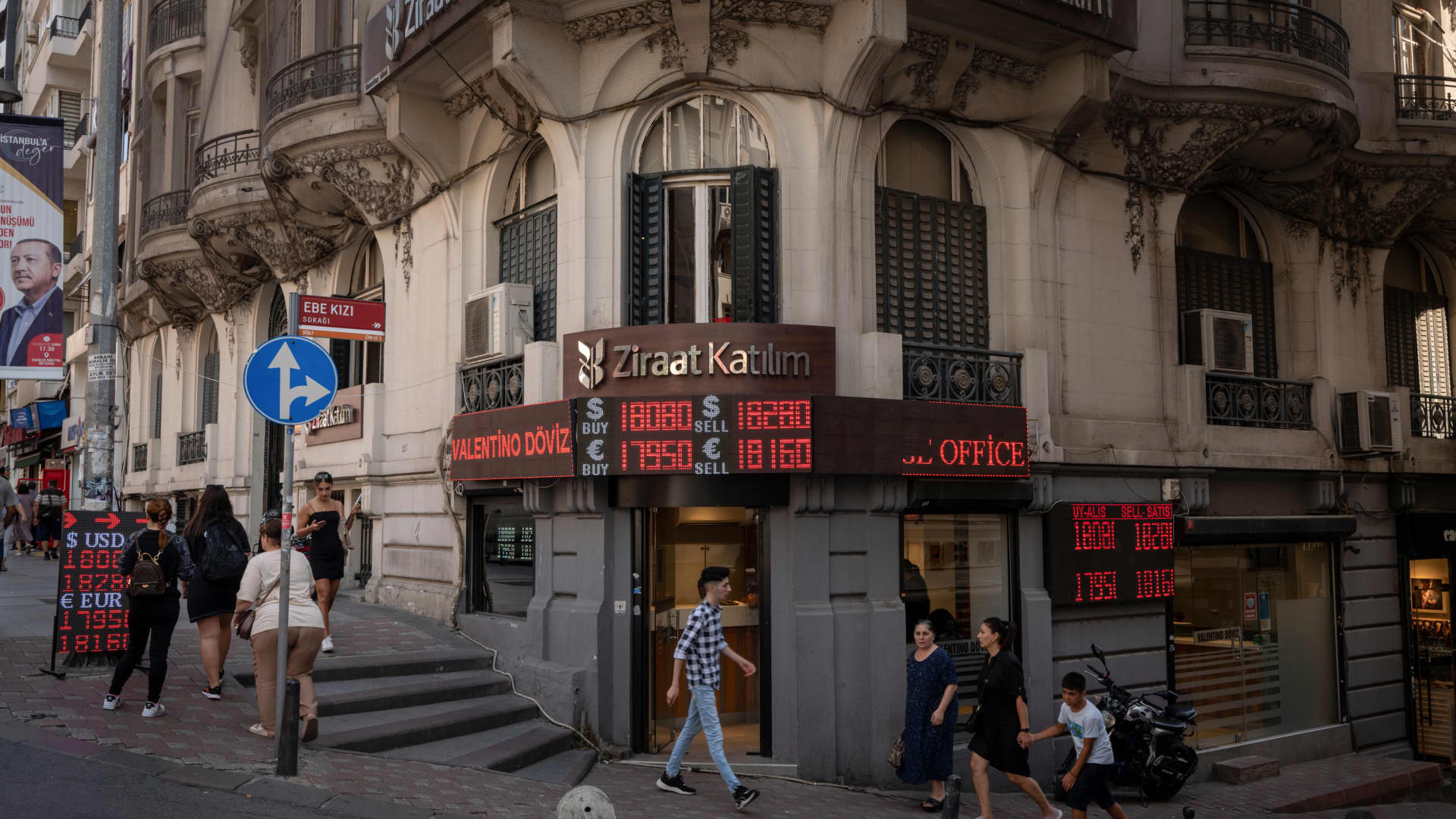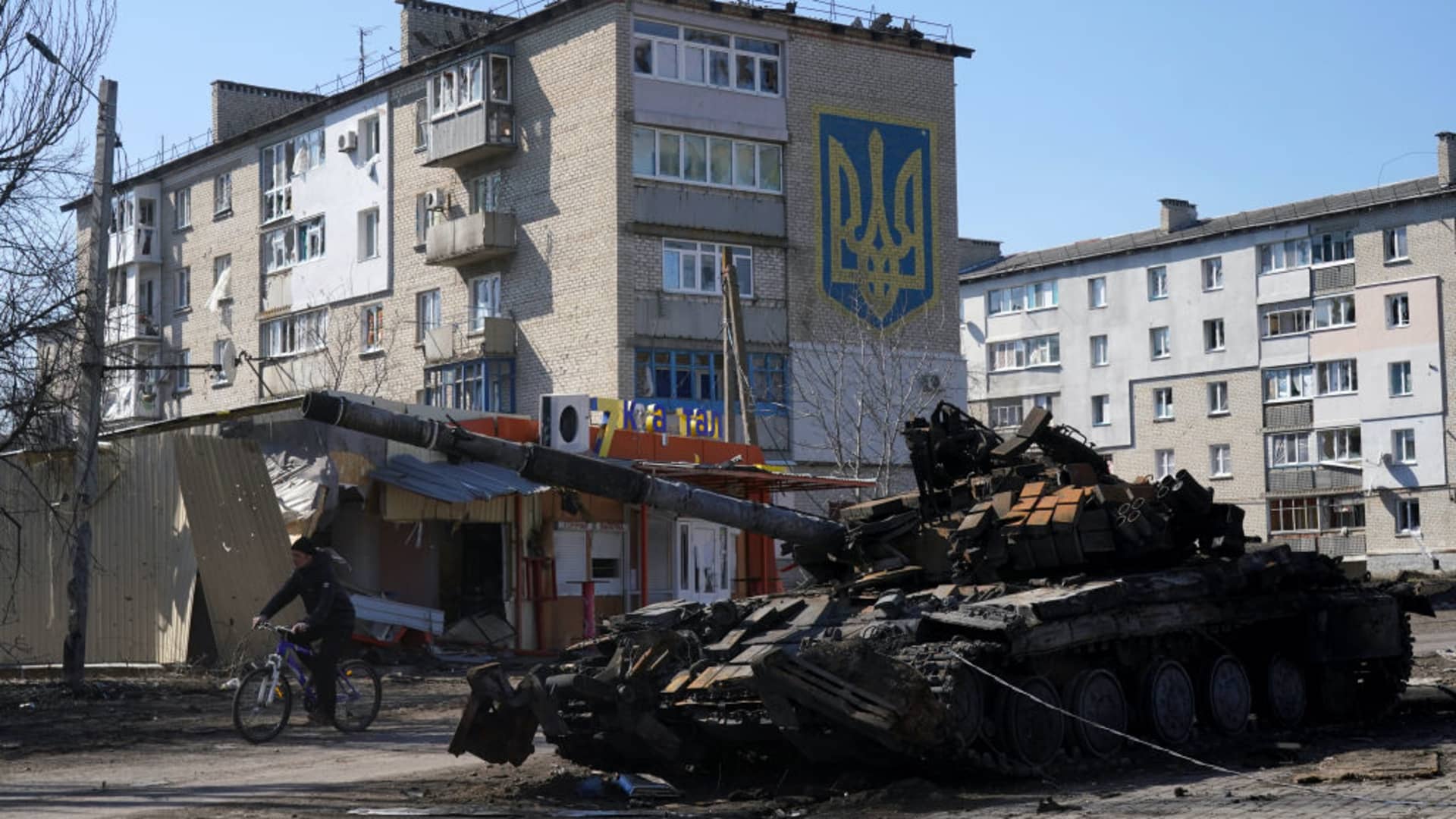Turkey cuts rates by 150 basis points and ends easing cycle
Turkey's central bank on Thursday cut interest rates by 150 basis points to 9% and decided to end its cycle of monetary policy easing, citing increased inflation risks.

An electronic board displays exchange rate information at a currency exchange bureau in Istanbul, Turkey, on Monday, Aug. 29, 2022.
Nicole Tung | Bloomberg | Getty Images
Turkey's central bank on Thursday cut interest rates by 150 basis points to 9% and decided to end its cycle of monetary policy easing, citing increased inflation risks.
The CBRT [Central Bank of the Republic of Turkey] has been under consistent pressure from President Recep Tayyip Erdogan to continue cutting rates despite soaring inflation, which hit 85.5% year-on-year in October as food and energy prices continued to soar.
"Considering the increasing risks regarding global demand, the Committee evaluated that the current policy rate is adequate and decided to end the rate cut cycle that started in August," the central bank said in a statement.
Erdogan has continued to insist that raising interest rates, in line with central banks around the world, would harm the Turkish economy, an insistence economists suggest has caused a significant devaluation of the lira currency and driven inflation higher. The president has repeatedly states his aim of getting the country's interest rate down to single digits by the end of this year.
"While the negative consequences of supply constraints in some sectors, particularly basic food, have been alleviated by the strategic solutions facilitated by Türkiye, the upward trend in producer and consumer prices continues on an international scale," the central bank said.
"The effects of high global inflation on inflation expectations and international financial markets are closely monitored. Moreover, central banks in advanced economies emphasize that the rise in inflation may last longer than previously anticipated due to high level of energy prices, imbalances between supply and demand, and rigidities in labor markets," it added.
The CBRT is undergoing a review of its policy framework, focusing on the "liraization" of its financial system and said in its report Thursday that it would "continue to use all available instruments" within the framework of this strategy until "strong indicators point to a permanent fall inflation and the medium-term 5 percent target is achieved."
"Stability in the general price level will foster macroeconomic stability and financial stability through the fall in country risk premium, continuation of the reversal in currency substitution and the upward trend in foreign exchange reserves, and durable decline in financing costs," the CBRT said.
"This would create a viable foundation for investment, production and employment to continue growing in a healthy and sustainable way."
This is a breaking story. Please check back for more.

 Kass
Kass 
































